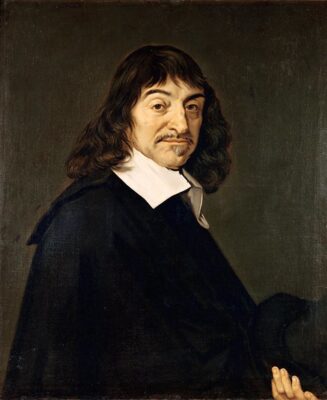Almost four hundred years ago, René Descartes upended philosophical thought with his simple observation “Cogito, ergo sum - I think therefore I am". This elegant chisel blow cleaved the brittle dogma of the day and helped usher in the age of enlightenment that continues to transform our world. Science and experimentation thrived in the ensuing centuries, built on a foundation laid by Descartes and other brilliant thinkers that reality was shared, knowable and predictable.
upended philosophical thought with his simple observation “Cogito, ergo sum - I think therefore I am". This elegant chisel blow cleaved the brittle dogma of the day and helped usher in the age of enlightenment that continues to transform our world. Science and experimentation thrived in the ensuing centuries, built on a foundation laid by Descartes and other brilliant thinkers that reality was shared, knowable and predictable.
That such simple observations catalyzed the technological transformation we live in today speaks not only to the power of their ideas, but how rotted the preceding power structures were. Are we in such a moment again?
For all our planetary dominance, signs of a collective malaise are increasingly unavoidable. The same technological forces that marginalized the church and nobility, today drive frightened masses into the arms of political populists. People clutch tighter to race, politics and cultural constructs during our disruptive rush to automation. Teen depression rates are skyrocketing, linked in part to the prevalence of social media platforms. As the measure of human existence has shifted from immortal soul, to production unit, to online consumer - what then are people for?
Descartes was so committed to the rigor of his philosophical inquiries that he sought to strip away everything previously assumed about the human condition, leading to his iconic core observation. Yet despite of his rigorous quest to unearth universal truths from first principles, Descartes was also a prisoner of his times - penning a long treatise he believed logically proved the existence of God.
He and other enlightenment thinkers had never had the benefit of witnessing our planet from space, understanding the sweep of evolution, or imagining sharing our world with an artificial intelligence vastly greater than our own. What ontological possibilities are possible if we allow humanity to finally topple from the pedestal of human supremacy that has constrained philosophical thought for millennia?
Since Descartes' day, scientific thought and spirituality have gone through a messy public divorce. Entrenched religious institutions persecuted rational thinkers like Galileo in a campaign of enforced ignorance that persists to this day in many parts of the world. For all its undeniable accomplishments, science remains hostile to inquiries that do not lend themselves to easy enumeration and statistical analysis. In his 2019 book Mama's Last Hug , primatologist Frans de Waal documents the entrenched resistance among his colleagues to acknowledge that non-human animals might be capable of experiencing emotion. Do none of these scientists own a dog?
Such institutional blind spots and internal turf wars have had grave externalized costs to humanity and our planet. Pretending that sentient beings do not crave a spiritual life in spite of almost universal empirical evidence to the contrary seems absurd. Yet what room is left for a higher purpose within hierarchy of hard science? Lay people un-steeped in the minutia of advanced mathematics are excluded from a collective conversation about meaning that has been a hallmark of human spirituality for millennia. Professional scientists are often not gifted communicators and are further restrained by the competitive culture baked into modern academia. Is a young scientist slogging towards a tenured position going to imperil their future with public speculations a millimeter beyond the provable data?
All this leads to a dispiriting sense among the non-religious that existence is largely meaningless and somehow explained by random assemblages of subatomic particles. In spite of levels of affluence unheard of in history - depression, substance abuse and suicide are rampant in many of the most prosperous parts of the world. Meanwhile disruptive technologies flourish untethered to anything more aspirational than the profit motive. The bold philosopher scientists of Descartes age have been replaced by worker bee technocrats cowed within academia, or hired guns muzzled by NDA's within secretive private ventures. A prone planet lies at our feet, seemingly saved only by divining a renewed higher calling able to withstand the winds of rational inquiry that have swept away so many spiritual traditions.
Four hundred years on, the enlightenment has a lot to answer for. As Descartes sought to rigorously strip away all conceits of perception in service of seeking self apparent truths, we must do so again - armed with knowledge unavailable to enlightenment thinkers. Are there evidence-based ethical boundaries to our exploding technological agency? Is there a mathematical morality lurking in our knowledge of the natural world that might restrain ourselves and our technological offspring? An unfinished revolution awaits.